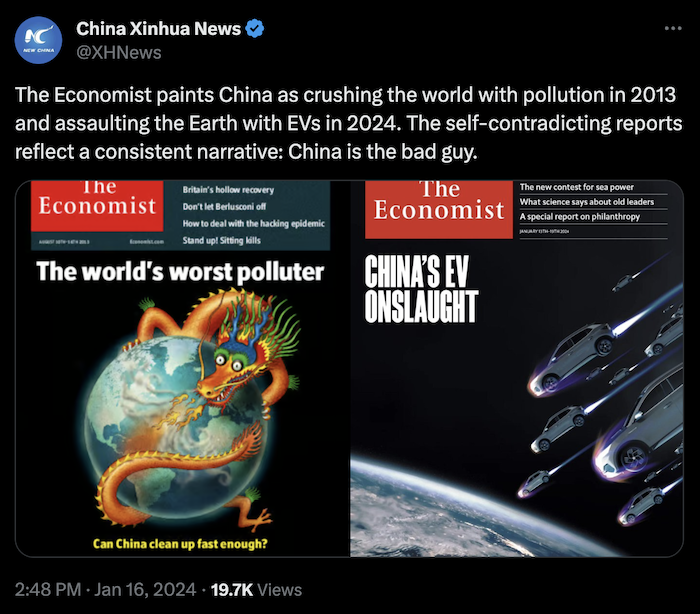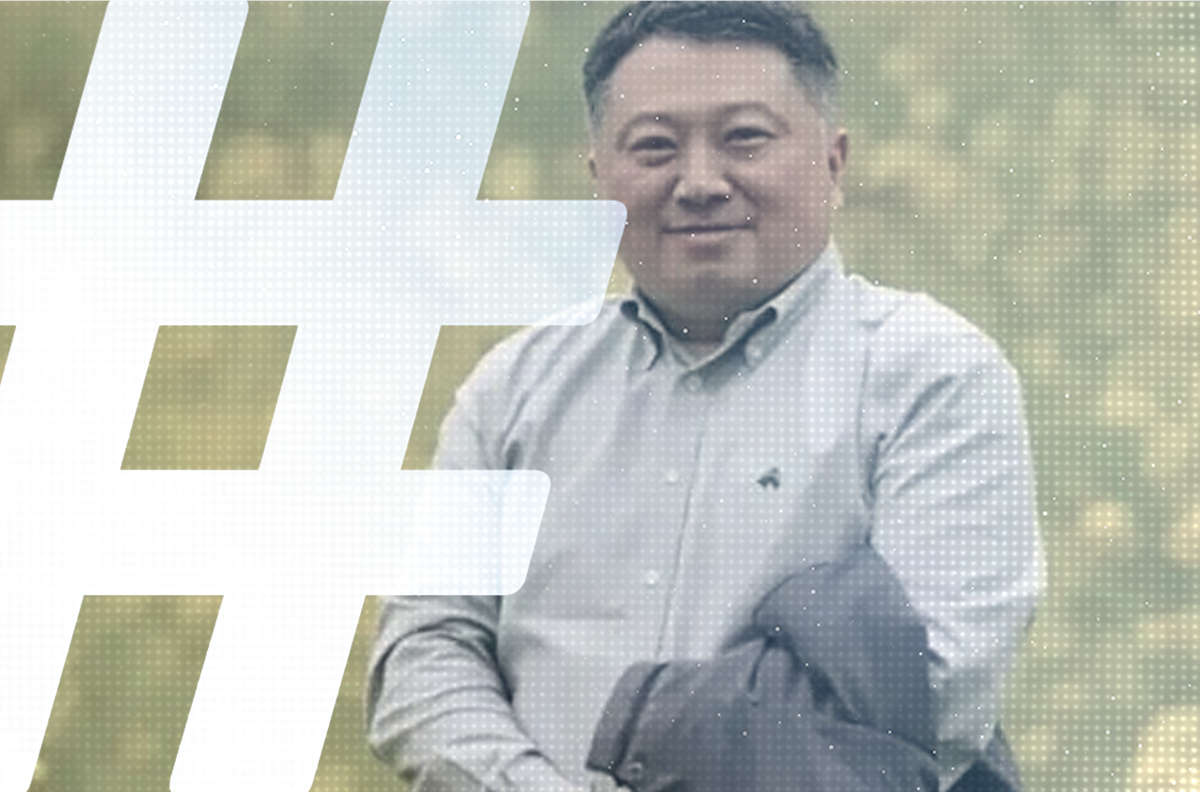
Image: Kostenlose Bilder mit Kl, at Flickr under CC license.
State media have had a field day this month with the cover of the January 13 edition of The Economist, “China’s EV Onslaught,” which depicted an in-bound meteor shower of China’s latest electric cars, poised to strike the Earth. China’s Ministry of Foreign Affairs (MFA), state media, and their affiliates on Twitter re-posted the image in quick succession as an example of the hypocrisy of how China is portrayed by Western media, comparing it to the magazine’s cover from 2013, which painted China as poising the globe on Armageddon as “The World’s Worst Polluter.”
The idea is that no matter what China does — pollute or invest in green energy — Western media inevitably find a way to attack the country. “The self-contradicting reports reflect a consistent narrative,” wrote the Chinese Consulate General in Sydney’s official account. “China is the bad guy.”
But not so fast.
Such posts entirely bypassed or omitted the content of the article, which argued that although the West fears Chinese expansion into electric vehicles (now making them the world’s largest car exporter), it should in fact “welcome them.”

The original tweet pointing out the contrasting covers came two days before state media, and apparently from outside the state media machine — from Sun Sibei, a PhD candidate at Macau University. Sun has made previous posts contrasting Western media reports or positions from experts over time to suggest hypocrisy in their stance on China. Sun has also co-written a paper on how Chinese diplomats use Twitter to push “well-structured narratives” about the country abroad as a “PR tool.” He has claimed that although state media “copied” his tweet, nonetheless The Economist’s “sensible commentary is obscured by sensational cover art and headlines, which is what most people see.”
It’s not the first time a sensational headline from international media has come across to the Chinese as biased, insulting, or racist.
Leaving aside pointless arguments about whether this meteor shower was meant to look awesome, apocalyptic, or both, it’s not the first time a sensational headline from international media has come across to the Chinese as biased, insulting, or racist. The Economist came under fire in June 2022 for a tweet from their official account that could be inferred to compare Chinese to pigs. A Wall Street Journal op-ed title from 2020 calling China “the real sick man of Asia” led to the first mass expulsion of Western journalists from China since the Mao years, and a statement of “regret” from the CEO of their parent company, Dow Jones.
However, whereas the above two examples became trending topics on the Chinese internet, this latest example has only been taken up by international accounts belonging to state media – the target audience is the West, not the supposedly insulted party. The tweets make no mention of what The Economist’s argument is, only the cover — resulting in the same oversimplification and hypocrisy Chinese state media accuses Western media of. This particular “well structured narrative” is designed to form doubts as to whether a well-respected Western periodical truly “understands China”. In 2013, Xi Jinping urged cadres to solve the problem of Western media “badmouthing” China by painting it as a “threat,” pointing out that “major Western media controls world public opinion” — correcting these myths in the international community will clear up “misunderstandings.”
Certainly, Western headline writers could walk more in step with the content of the articles on their platforms. But by judging a magazine by its cover, state media have only discredited a story that — had they quoted it instead — might have served the talking points of the Chinese government, arguing that Western countries, now gripped by fear of Chinese EV imports, should keep their markets open.




















